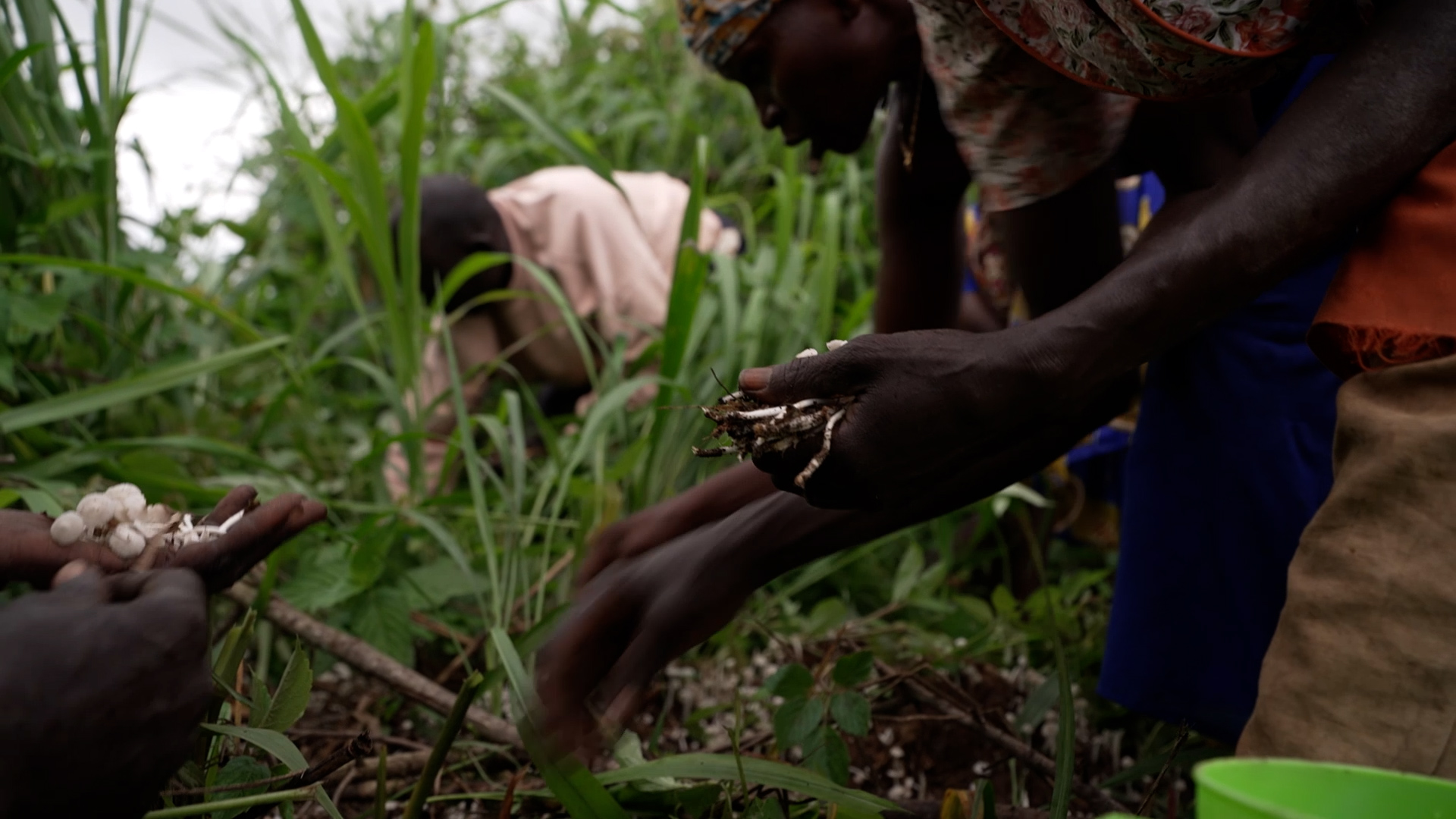Funding lags as more flee South Sudan
Funding lags as more flee South Sudan

ADJUMANI, Uganda – When gunmen stormed her village in South Sudan, shooting at random and harassing residents, Regina and her disabled son ran for their lives.
“They came to my house and told me they would shoot me if I didn't give them what we had,” said Regina. “It took us four days to come to Uganda through the bush without food.”
The 58-year-old is among more than 100,000 South Sudanese who have fled to neighbouring countries, including Uganda and Sudan, since fighting erupted in the capital, Juba, in early July. Sporadic violence and worsening food insecurity has been reported in other parts of the country which were previously calm.
The recent unrest appears to have tipped the scales against an imminent political solution to the South Sudan conflict and exacerbated the refugee crisis, UNHCR, the UN Refugee Agency, has warned.
“It was widely reported that that the situation in the country is now characterized by sporadic armed clashes, human rights violations including increasing trends of sexual and gender-based violence by uniformed actors, and worsening food insecurity all of which are inflicting untold human suffering on civilians,” UNHCR spokesperson Adrian Edwards told a news briefing in Geneva today.
Edwards stressed that general security conditions inside South Sudan remain unpredictable, with renewed clashes reported in Central and Western Equatoria, Western Bahr el Ghazal, Upper Nile and parts of Unity. He noted that the situation is compounded by a deteriorating economy, with inflation rising to an unprecedented 600 per cent over the past year.
The deepening crisis raises the prospect that the South Sudanese refugee population will reach 1 million in the coming months. If current displacement trends continue, countries hosting them will be increasingly strained, as operations are critically underfunded.
"The situation in the country is now characterized by sporadic armed clashes and human rights violations."
Uganda and Sudan have received an estimated 110,000 and 100,000 new arrivals respectively in 2016, together accounting for more than 90 per cent of the 229,000 new arrivals recorded this year.
Most of the 100,000 who fled to Sudan arrived in the first half of the year, driven away by fighting in previously stable areas in Western Bahr al Ghazal state, as well as the worsening food insecurity situation. Another 1.61 million people remain displaced within South Sudan.
Uganda has received more than 75,000 refugees since the outbreak of conflict in July, when the arrival rate peaked at more than 8,000 in one day. Ninety per cent of those fleeing are women and children, mostly from Juba and other parts of Central Equatoria.
Accounts from new arrivals point to a breakdown in law and order in their home areas. Refugees cite clashes between government forces and armed groups as well as killings, abductions of children and sexual assault against women. Some reaching Uganda also report that armed groups are robbing civilians and extorting money from them, preventing those who are unable to pay from leaving.
“We tried to go to Uganda, but people were on the road robbing people's money. We gave them our money and they let us cross,” said Jokino, 50, a refugee from Juba who recently reached Adjumani, a town in northern Uganda. “I am worried that… peace will not return to [South] Sudan for a long time."

Funding Critical
With the South Sudanese refugee population now at 930,000 and rising daily, UNHCR is facing critical funding shortages.
“UNHCR is extremely worried that even as the number of South Sudanese refugees rises, funds to meet basic needs are becoming exhausted,” Edwards told reporters at the Palais des Nations.
The UN Refugee Agency has only received 20 per cent of the US$ 608.8 million needed for refugees in South Sudan and the six countries of asylum this year. Many activities have been suspended in favour of providing critical life-saving support to new arrivals.
Worst affected are remote regions within Uganda, Sudan, Democratic Republic of the Congo and Central African Republic where UNHCR had no previous presence. Ethiopia and Sudan, which have experienced mass influxes, are also badly affected.
UNHCR is appealing to the international community to support countries of asylum to protect and assist South Sudanese refugees in their greatest time of need.
“Continuing funding shortages will further disadvantage women, children and men who need urgent sustained support to overcome the trauma of forced displacement and get on the path to recovery, self-reliance and human dignity,” Edwards said.
"Funding shortages will further disadvantage (those) who need urgent sustained support to overcome trauma."
“The inability to provide food, shelter, basic services, psycho-social assistance, education and livelihood opportunities will condemn refugees to a prolonged vulnerable existence,” he added.
To meet urgent needs of newly arrived refugees, the Government of Uganda has opened a new settlement in Yumbe, in the north-west of the country, with capacity for more than 100,000 people. Funds are urgently needed to expedite the relocation of more than 45,000 refugees from overstretched and severely congested reception and transit centres.
Edwards stressed that with so many people now living in such close proximity, the potential for an outbreak of disease is high. UNHCR teams are monitoring the situation closely, but are in need of further resources to respond effectively.
High numbers of refugees are also creating a disproportionate burden on local health and education services. The development of Maaji III settlement, which opened earlier this year, has been put on hold, leaving the new settlement without key basic infrastructure and services. Medical services are being provided in tents.
In Adjumani, clean water is being trucked in at great expensive until resources become available to drill more boreholes and extend water systems to reach new settlement areas.
At the same time, the development of newly opened settlement areas in Adjumani and Yumbe districts will require significant additional investment. Torrential rains are hampering relief efforts, slowing down relocation efforts and requiring immediate road repairs.









